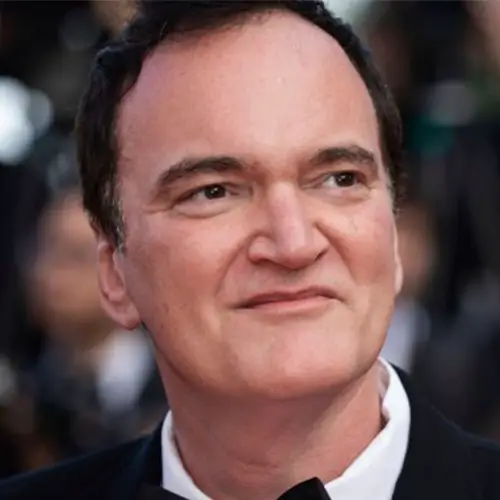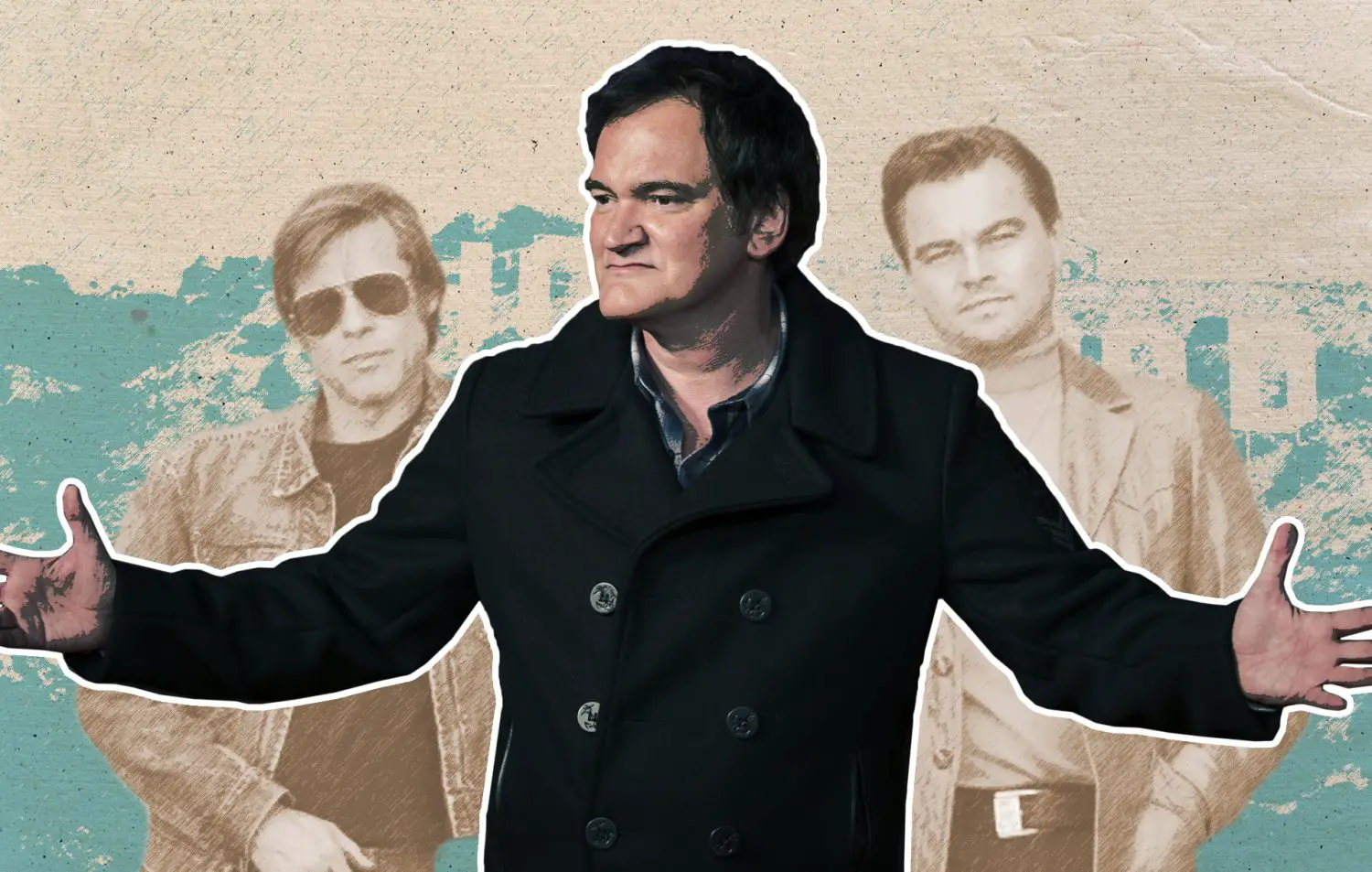Once Upon a Time in Hollywood exploded into theaters at the end of July, and director Quentin Tarantino’s elaborate homage to the Hollywood of the late 1960s, set against the backdrop of the Manson Family murders, is not only the director’s biggest opening ever, but it’s his best-received movie since the 1990s.
The two-hour-and-45-minute epic, starring Leonardo Di Caprio, Brad Pitt, Margot Robbie, and a supporting cast dozens deep, has drawn positive reviews – 84 percent on Rotten Tomatoes – and it earned $40 million at the box office in its opening weekend.
But above all else, Once Upon A Time in Hollywood has drawn a lot of diverse reactions, and started a lot of arguments. Which is, let’s not forget, exactly what cinema is supposed to do, and rarely does these days.
Here Come the Think Pieces
The release of OUATIH has inspired a long list of think pieces about the film, and Tarantino’s work in general, in recent weeks. A lot of them were fair and illuminating. Others, somewhat less so. But overall, such arguments are a sign of healthy discussion, the kind we don’t get nearly enough of in today’s cinematic culture.
On the unfair side, at least two pieces published in recent weeks have argued for Tarantino to be “cancelled.” There have been silly controversies about studio-mandated spoiler warnings, and a mysterious (and hilarious) episode where someone kept updating the “plot” section of the film’s Wikipedia entry to insert a completely inaccurate description of the ending.
A lot of them were fair and illuminating. Others, somewhat less so. But overall, such arguments are a sign of healthy discussion, the kind we don’t get nearly enough of in today’s cinematic culture.
The more specific critiques go like this: The ending, and the way it alters history, is indefensible. The director has been criticized for metaphorically fetishizing violence against women, for literally fetishizing women’s feet, for all but omitting black people from the new movie, and for what some describe as a reactionary, anti-hippie vibe to OUATIH.
PETA, as usual, has raised objections about the movie. The film has been criticized for its handling of Roman Polanski, Sharon Tate’s husband, who’s in the film for about two minutes (the piece in The Forward about the film’s “Roman Polanski problem,” I believe, read things into the film that simply are not there at all).
In addition, some have also resurfaced stories from a couple of years ago in which Uma Thurman blamed the director for her injury in an unsafe Kill Bill stunt, as well as for Tarantino’s long working relationship with Harvey Weinstein, as OUATIH is the first film he’s ever made without the disgraced studio boss’ involvement.
Many of these critiques are perfectly valid, especially the latter two, and Tarantino himself agrees. He has apologized to Thurman, whose daughter, Stranger Things’ Maya Hawke, is in the new movie; and also expressed regret that he didn’t do more to stop Weinstein, about whom Tarantino admitted, in 2017, that he “knew enough to do more than I did.”
Many of these critiques are perfectly valid, especially the latter two, and Tarantino himself agrees.
In (Partial) Defense of QT
I consider Quentin Tarantino one of my favorite filmmakers, and Pulp Fiction the film that was more important to me, in terms of understanding what movies are and the things that they can do, than any other picture that’s come out in my lifetime. I think Once Upon a Time in Hollywood is his best film in years.
But I don’t consider the man to be above critique or reproach, and there’s absolutely nothing wrong with criticizing him, his behavior, or his work (in fact, his last three films left me somewhat cold, which is part of why I appreciated the liveliness of the new movie). As for the critiques of the film itself, I may not agree with all of them, but they’re the sign of a perfectly valid and healthy discussion about a popular and clearly significant piece of cinema.
…how many movies in the summer of 2019 have actually gotten people arguing? How many have you even thought about for more than a day or two after seeing them?
And besides, how many movies in the summer of 2019 have actually gotten people arguing? How many have you even thought about for more than a day or two after seeing them? It’s pretty much only been Midsommar and Once Upon a Time in Hollywood. And other than Us or perhaps Booksmart, OUATIH has occasioned more interesting writing than any other movie this year.
A Losing Argument
But some movie observers seem to be taking the criticisms of OUATIH rather personally.
Sasha Stone wrote a piece for Awards Daily, shortly after the release, defending the film against this criticism. She also tweeted on the topic, in which she positioned the anti-OUATIH sentiment as nothing less than an existential attack on the director and his ability to do his work.
“Most people I know are afraid of Twitter mobs,” Stone said on Twitter. “I get why but it won’t stop until people stand up and make it stop. Here’s hoping more people defend Tarantino’s right to make a movie even if you didn’t like it. Even if you’re called out by the mob.”
There’s one important thing to keep in mind here: Tarantino’s “right to make a movie” is in no jeopardy whatsoever. There’s no organized effort to suppress his work, nor does any think piece writer have the power to hurt him or his career in any way.
If someone writes in The Guardian that “it’s time to cancel Quentin Tarantino,” or someone else writes in The New York Post that “Quentin Tarantino’s exploitation has no place in Hollywood anymore,” it does not mean that he is, in fact, cancelled, or that Once Upon a Time in Hollywood is in any danger of being censored or suppressed.
No Censorship
It’s not like a single call on Twitter or in an opinion piece for Quentin Tarantino to be cancelled kicks off a central arbitration process with the potential for the director to face permanent banishment. That’s not how it works. Way too often these days, when Person A says “I have a specific qualm with a specific aspect of that movie,” it’s heard by Person B as “I want that movie censored and its director banned from working in Hollywood forever.”

It’s also worth pointing out that the majority of reviews and pieces about Once Upon a Time In Hollywood have been positive, many of those criticizing aspects of the film have done so in the context of praising the movie overall, and that the “Cancel QT” crowd is not only very small, but it’s very clearly losing the argument.
Quentin Tarantino, with Once Upon a Time in Hollywood, just had the largest opening of his career.
And besides, there’s only been one major effort to boycott a film by Quentin Tarantino. It came not from the intolerant wokesters of the left, but rather… police unions, who in 2015 threatened a national boycott of The Hateful Eight after the director praised Black Lives Matter in an interview.
Quentin Tarantino, with Once Upon a Time in Hollywood, just had the largest opening of his career. He’s looking at huge opportunities and power as a result of that, much more so than if he’d not made the movie at all.




